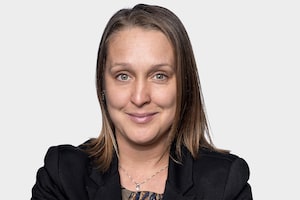unknown
Stephanie Snider and her husband are decades away from retiring, but they talk – and worry – about it constantly.
The Vancouver couple recently had their second child and, with Ms. Snider working part-time from home to save on daycare costs, there is no money to squirrel away for their golden years.
"I can't remember the last time I made a contribution to my RRSP," said the 34-year-old communications consultant. "Only my husband is able to make minimum contributions through his work because they have a matching plan."
Ms. Snider and her husband would like to retire early but acknowledge that it might not be feasible. "The next five to 10 years will be difficult financially and ... our priority is to not have debt in retirement."
Alison Griffiths, author of the upcoming book Count On Yourself, which will cover retirement planning, saving and investing, says that there's nothing terrible about carrying a manageable amount of debt into retirement - as long as you have a plan to pay it off.
She believes that an increasing number of Canadians will be working past the traditional age of retirement, which means that most retirees will have some form of income. "Despite the current popularity of the notion of early retirement, many people are working longer – both because they want to and because they have to."
Ms. Griffiths gave us this list of retirement myths:
1) You need 75 per cent of working income in retirement. This is the typical rule of thumb but many retirees will manage on far less than that. Your lifestyle, housing situation and health have a huge impact on your needs, as does your net worth, which includes inheritances and home equity. Downsizing, for example, not only boosts your cash-on-hand but also will reduce taxes and maintenance.
2) Debt in retirement is a really bad thing. If you have the retirement income to support it and a debt-free end point, then don't worry about it. Having no debt is a great goal, but the reality of real-estate costs and kids – especially if you are an older parent – means you may still owe money after retirement. The key is to have manageable debt and a reasonable time frame for paying it off.
3) Freedom 55 is the brass ring. "Everyone I know who retired at 55 is back working, many of them full-time," says Ms. Griffiths. The reasons aren't always financial – most of us spend our working lives with other people and miss the interaction after retirement.
4) Hard work and good planning guarantee a good retirement. Financial disasters, from divorce to disability, do happen, but obsessing about what may happen after retirement can detract from your current quality of life. The best you can do is to set aside some just-in-case money, in addition to regular retirement savings.
5) You must have money in the stock market to grow your retirement funds. Investing only in bonds and GICs for the last 10, 20 and 30 years has returned as much or more than investments in the stock market and with less risk. "No one knows what the future holds, but high-quality bonds and GICs offer as close to a guaranteed return as exists," she says.
 Roma Luciw
Roma Luciw